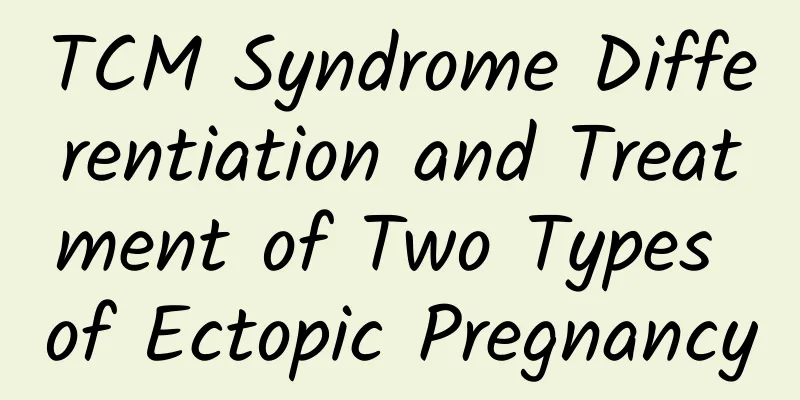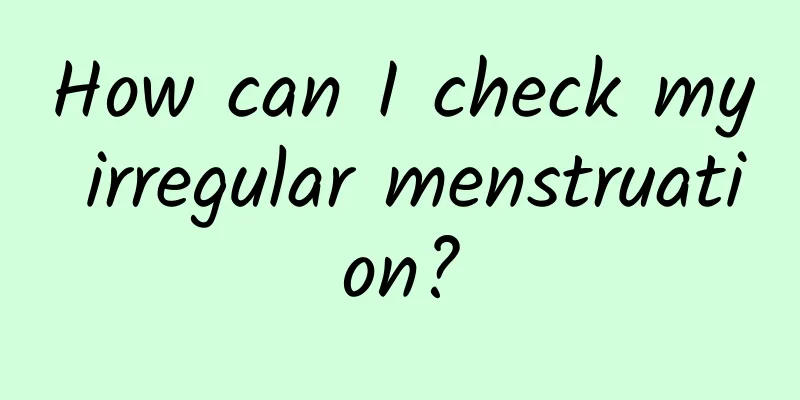Can women with chronic pelvic peritonitis heal on their own?

|
Will women with chronic pelvic peritonitis heal themselves? Many women with pelvic peritonitis are lucky enough to get better without treatment. Some friends think that pelvic peritonitis is caused by bad daily living and hygiene habits, sexual life, contraceptive measures, artificial abortion surgery and vaginal lesions. As long as the above bad habits are improved, pelvic peritonitis will heal itself. Experts remind: this statement is unfounded. If pelvic peritonitis is not treated in time, it will lead to infertility or other complications. Therefore, it is recommended that women actively treat pelvic peritonitis after it is detected. What are the dangers of not treating pelvic peritonitis in time? Chronic pelvic peritonitis mostly comes from acute inflammation. For those whose acute inflammation is not treated in time, or the treatment is not thorough, or the patient has a poor physical condition, the condition can be delayed from acute, and some even have chronic inflammation directly without acute process. It is mostly manifested as bilateral salpingitis, which causes the opening of the fallopian tube, especially the end that receives the egg, to be partially or completely closed over time. It can also cause the inner mucosa of the fallopian tube to adhere due to inflammation, causing the lumen to narrow or close. In this way, the passage of eggs, sperm or fertilized eggs is hindered, leading to infertility. Severe pelvic peritonitis can spread to the pelvic peritoneum, uterus and tissues beside the cervix, eventually causing these organs and tissues to harden and become inactive, especially the fallopian tube loses its soft peristaltic physiological properties, becomes stiff and twisted, and the lumen is completely blocked to the point where it cannot be cured. At the same time, chronic pelvic peritonitis rarely attracts the attention of patients because its symptoms are not very obvious. If you learn that you have pelvic peritonitis and do not cure it as soon as possible, it is likely to lead to the above infertility. Experts remind: When women suffer from pelvic peritonitis, they should actively seek treatment. Without effective treatment, the condition will worsen and even bring more serious consequences to women, such as infertility, causing great harm and threats to your marriage and life. |
<<: How acupuncture treats pelvic peritonitis in women
>>: Can chronic pelvic peritonitis be cured?
Recommend
How to take abortion pills?
When taking abortion pills, you must fast for two...
Is cervical erosion hereditary?
Cervical erosion is a common gynecological diseas...
What are the common early symptoms of cervicitis?
What is cervicitis? What are the early symptoms o...
The most feared thing when losing weight is edema. Not only can lifting your feet eliminate it, but with these 4 tips, eliminating edema is no longer a dream!
People who want to lose weight are troubled by lo...
What health care measures should women take after abortion?
Women must not take it lightly after an abortion ...
What to do if infection occurs after abortion
Reproductive organ infection within 2 weeks after...
How to treat candidal vaginitis with medication?
How to treat candidal vaginitis with medication? ...
Experts analyze the common causes of ectopic pregnancy
The cause of ectopic pregnancy is a question that...
Keep in good shape and lower your cholesterol! How to Eat Mixed Vegetable Soup
★Italian mixed vegetable soup Serving size: One s...
What are the dangers of ovarian cysts?
Any disease has its harmfulness, but some are mor...
What medicine should women take to treat chronic cervicitis? This kind of medicine is effective in treating chronic cervicitis
Chronic cervicitis can be treated with anti-cervi...
Patients with cervical erosion should know some daily precautions
Nowadays, people of all ages may suffer from cerv...
How to check for miscarriage
In recent years, many women want to get pregnant ...
Does vaginal candidal infection affect menstruation?
Will candidal vaginitis affect menstruation? Clin...
Common symptoms of uterine fibroids in daily life
Uterine fibroids are a serious gynecological dise...









